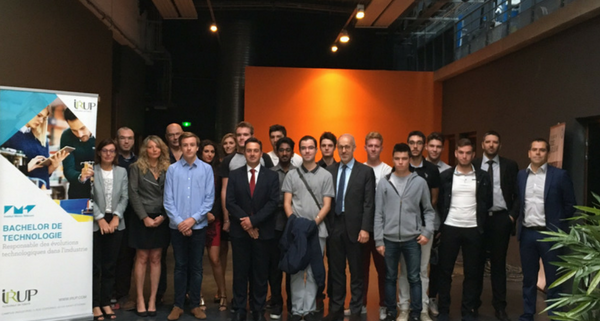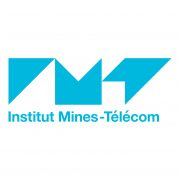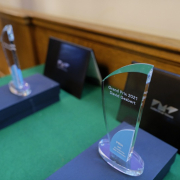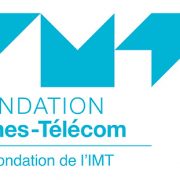Industry of the Future: IMT’s new Bachelor’s degree in technology off to a start
On 11 September, Philippe Jamet, President of IMT and Cyril Faure, President of the IRUP, welcomed the first class of students to the new technology Bachelor’s Degree in “Leading Digital Transition in Industry”.
The course aims to train future production managers of SMEs and midcaps in how to support industries in their transition towards the Factories of the Future.
Supporting the digitalization of businesses
Backed by its experience in training engineers and its awareness of the needs of the business world; IMT officially announced in January that it would be creating its first short training course aimed at students with a baccalaureate in Sciences and Technologies for Industry and Sustainable Development (STI2D), in partnership with IRUP. The Bachelor’s Degree in “Leading Digital Transition”.
On 11 September, 13 students started the academic year in the first class of this new training course. The class boasts a promising level of diversity, with 38% of students having a baccalaureate in STI2d, 31% a vocational baccalaureate, and the final 31% a scientific baccalaureate.
Aged between 18 and 21, the majority of the students are from the Auvergne Rhône-Alpes region, with 55% originating from the Loire area.
All aspects of digital transition
The first year of the degree will see them work as full-time students, whereas the following two years will be based on work-study contracts. The course addresses all the aspects of digital transition necessary to support industries in their future evolution. It will use innovative, immersive teaching methods allowing the students to do project work on real tasks provided by businesses, from the very first year. These future leaders in technological evolution in industry will develop scientific, technological (3D printing, augmented reality, etc.), managerial and administrative skills.
Stage one: issues in the industry of the future
The young students began their course with a “technology summer school”, the objective of which was to encourage students to reflect on the issues of the industry of the future from the very start of the course, allowing them to understand which skills they will need to develop in order to become key players in these transitions.
By the end of the course, they will be able to assess, evaluate and elaborate production systems; integrate digital transition in a thought-out way; consider the QSE, CSR and energy contexts of industrial activity; and manage human resources and change on an operational level.
A comprehensive training course, from Bachelor’s degree through to PhD
IMT oversees 11 engineering and management schools across France, with over 13,700 students mainly enrolled in “Grand École” type programs, coming out with a Masters-level qualification at the end. As a founding member of the Future Industry Alliance, which brings together professional federations and institutions, IMT now offers comprehensive training (from Bachelor’s degree through to Doctorate) in order to support businesses in their industrial development.
After passing his STI2d baccalaureate, Côme, 18, decides to enroll in the degree’s first class
 A real interest in digital technology, new technology and IT as well as a strong desire to pursue a work-study type course following in the footsteps of his brothers are the things which led Côme to make the decision to enroll in this diverse and ambitious course. He appreciated the opportunity to gain professional experience though the course over the next two years. Côme had been searching for a course which would logically follow on from his baccalaureate and that he would be enthusiastic about, wishing “to stop learning just for the sake of taking exams”. He wants to use his knowledge to assist businesses involved in digital transition.
A real interest in digital technology, new technology and IT as well as a strong desire to pursue a work-study type course following in the footsteps of his brothers are the things which led Côme to make the decision to enroll in this diverse and ambitious course. He appreciated the opportunity to gain professional experience though the course over the next two years. Côme had been searching for a course which would logically follow on from his baccalaureate and that he would be enthusiastic about, wishing “to stop learning just for the sake of taking exams”. He wants to use his knowledge to assist businesses involved in digital transition.


























